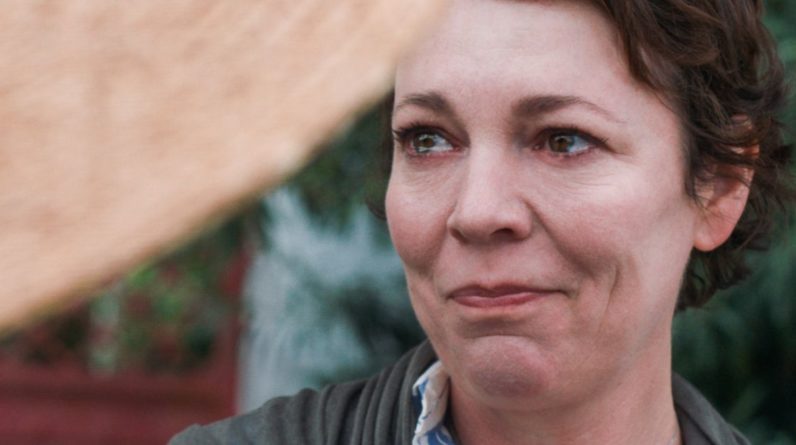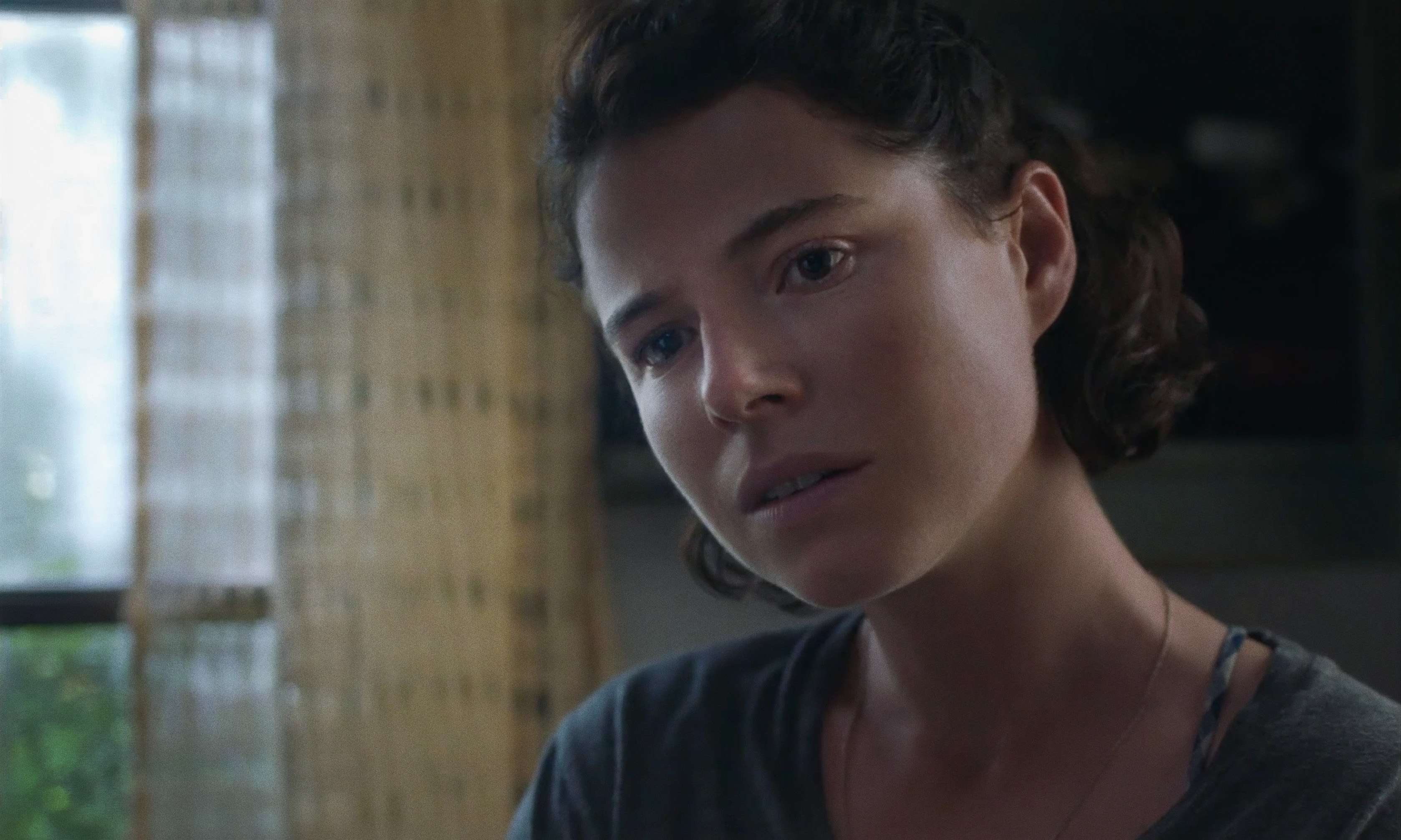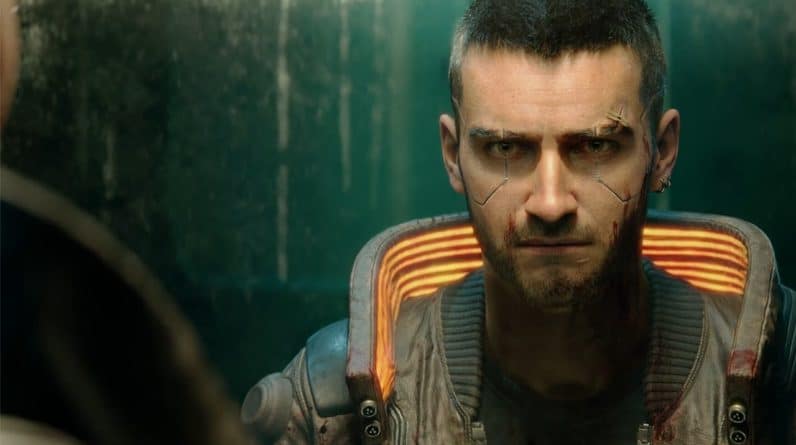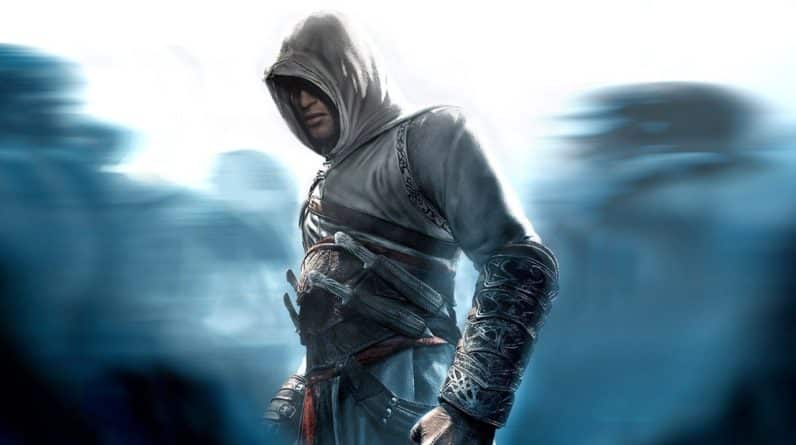
“I’m a very selfish person,” explains Leda Caruso (Olivia Colman), a literary professor taking a workcation in a seaside Greek town in The Lost Daughter. Based on a novel by Elena Ferrante, actor Maggie Gyllenhaal’s directorial debut follows Leda, a mother of two adult daughters, Bianca and Marta, searching for a quiet corner to read, write, and relax. Leda thinks she’s discovered such a place at a resort’s sunny beach. The older caretaker Lyle (a still dashing Ed Harris) seems to have eyes for her. As does the young, cheerful Irish student Will (Paul Mescal).
Her downtime is interrupted, however, when she meets a noxious family with little regard for the people around them. The family’s matriarch, a pregnant Callie (Dagmara Domińczyk), displeases Leda through her micro-aggressions. Conversely Leda becomes obsessed with Callie’s relatives: Nina (Dakota Johnson) and her daughter Elena (Athena Martin). Leda sees a portion of herself in Nina, a young woman struggling with motherhood. Gyllenhaal confirms as much in a series of flashbacks to Leda’s younger years (played by the always fantastic Jessie Buckley), when she was a comparative literature grad student balancing her studies with caring for her precocious daughters.
In conducting the drama, Gyllenhaal is frank about the hardships of motherhood, and the idea that not every person is cut out for the task (in that regard the film works well in complement to Mike Mills’ recent C’Mon C’Mon). In fact, the film very much says that sometimes being a mom is the worst thing that can happen to a person. The Lost Daughter, a sharply crafted, clear-eyed interrogation of less-than-likable parents, ebbs and flows on the strength of this reality, along with a few immense performers from its veteran ensemble.
:no_upscale()/cdn.vox-cdn.com/uploads/chorus_asset/file/23136461/TLD_UKS_0016.jpg)
Gyllenhaal and cinematographer Helene Louvart discover extensive complexities over the terrain of these actors’ faces. Unlike the impulses of many other filmmakers, including exceptional ones like Ridley Scott in House of Gucci, the filmmakers here have broken through the staid, repetitive visual language of medium compositions and embraced the power of the close-up. The camera, rarely hurried in how long it settles on a character, constantly searches Colman’s face for the wellspring of conflicting emotion gushing from her.
The expressive Colman seizes these moments with aplomb. When Callie, for instance, asks her to move her umbrella, the chipper lips of Leda turn down to reveal scorn. At other times the ecstasy of escape consumes her face and frame: Such as the late-night revelry her and Lyle share dancing to Bon Jovi. Flirtatious fissures erupt causing mischievous smiles to creep across Colman’s face. Leda can also be wistful: She watches the overwhelmed Nina struggle to care for Elena. Seeing mother and daughter interact unmoors Leda, and painful memories of raising Bianca and Marta shake her, causing fainting spells.
The Lost Daughter soaks itself in extremes. Louvart’s photography captures the sun as a character; it can make the hues of the brown sand, the verdant green trees, and crystal blue waters almost overbearingly vibrant. Mixed with a sparse environment rife for contemplation, none of the interiors or exteriors are ostentatious, the mood concerning past loves and distant children resembling Richard Linklater’s Before Midnight. The parallel gains deepend the relationship between Leda and Lyle. They’re two of a kind, imperfect parents to their respective children.
“I’m an unnatural mother,” Leda later explains to Nina. The personal shortcomings of flawed parents is the dramatic churn of Gyllenhaal’s film. It’s the desire to run away when the parental mantle you are ill-equipped for becomes untenable. Each character in vain tries to circumvent their filial role: Lyle living in near solitude in the endless summer of this Greek locale; Nina finding comfort in a lover; and Leda in her younger years absconding abroad. Despite these characters’ deepest desires, born from a kind of selfishness, they cannot wish their children away. Nor can they ignore their internalized regret as parents to shoulder certain responsibilities.
These difficulties bubble up in Nina and Lyle, but it’s most acutely felt in the arcs of Leda’s past and present lives. Though Buckley and Colman share few physical similarities, a common spirit, from the expressiveness of their faces to the way they internalize ire, flows through them. They also share a talent for acting out performatrive false impressions; the ways people can converse in small-talk with rote maneuvers, a laugh here, wide-eyes there, but not be totally present in the moment. Leda floats through the world on that passive wave wherein her true motives are never wholly known. Somehow without having direct scenes together Colman and Buckley nurture that through-line, offering real, lived-in contours to a complicated character.
These tangents twist and turn to form a later mystery: A doll belonging to Nina’s daughter goes missing. Leda is quickly revealed as the culprit, but the enigma isn’t the who in this situation. It’s the why. Despite seeing the effect the missing doll has on Nina’s daughter, her yowls echo over the beach, Leda keeps the play companion to herself. Keeping in mind spoilers: The doll is the emotional fulcrum of Leda’s feelings on her own motherhood. In taking apart Leda’s reasoning Gyllenhaal relies on a deliberate pacing, accompanied to Affonso Gonçalves’ sophisticated jazz-blues score, whereby certain scenes arrive in a torrent and others move leisurely. The latter can be felt to crushing degrees, an intended desire but one whose side-effect might grate some.
It’s difficult to believe The Lost Daughter is Gyllenhaal’s feature directorial debut. The rhythms of the narrative, the assured visual language, the precise performances she pulls from each actor moves with the confidence of a veteran filmmaker. There isn’t a single scene devolving into excess, a single extraneous line of dialogue or a shot that lingers beyond its welcome. Gyllenhaal knows exactly what she wants and how to get it. If The Lost Daughter, in its philosophical, complex steps, is a sign to come for the actress turned writer-director, then her filmmaking future is as bright as the Greecian sun.








